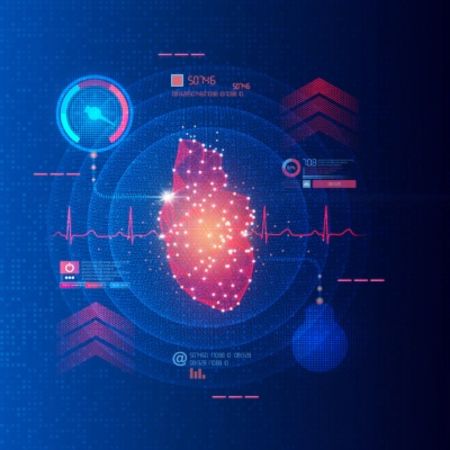The American Heart Association (AHA) advocates exploring AI and related technologies to enhance cardiovascular and stroke research and care. Despite considerable investment in AI in healthcare, its widespread use in cardiovascular medicine remains unproven.
A new statement by the AHA, titled "Use of Artificial Intelligence in Improving Outcomes in Heart Disease," examines various AI applications in cardiovascular medicine, highlighting gaps, challenges, and the need for standardised platforms and regulatory pathways. The statement emphasises the importance of prospective research, clinical validation, and addressing biases to build trust and facilitate the adoption of AI in clinical practice.
AI and machine learning tools assist in enhancing screening and advancing researchers' understanding of optimal health and precision treatments for complex health issues. However, there's an urgent need to comprehend how to integrate these tools into medical care in a fair, ethical, cost-effective, and applicable manner across different scenarios.
The statement's writing committee thoroughly examined various AI and machine learning applications in cardiovascular medicine, delving into ongoing research, findings, gaps, challenges, and prerequisites for widespread, safe usage. While AI holds transformative potential in cardiovascular medicine, numerous hurdles persist, and only a few AI tools have demonstrated improved patient care.
AI can analyse vast datasets and make predictions, primarily for well-defined tasks, such as offering clinical and mechanistic insights across basic, translational, and clinical studies. Machine learning employs statistical and mathematical models and algorithms to identify patterns within extensive datasets that may elude human observation through conventional methods. Deep learning helps in the analysis of intricate datasets matched with informative labels, particularly evident in image recognition and interpretation.
Adopting these technologies has facilitated the examination of electronic health records (EHRs) to comprehend various treatment effects, compare the efficacy of tests and interventions, and develop predictive, classificatory, and optimisation models to aid clinical decision-making. AI applications in cardiovascular care encompass cardiac imaging, electrocardiography (ECG), bedside monitoring, implantable and wearable technologies, genetics, and EHR interpretation.
Key Limitations and Challenges:
- Essential protocols ensuring accurate information sourcing, selection, organisation, and safeguarding privacy are imperative. Additionally, potential ethical and legal challenges necessitate resolution.
- A deeper scientific knowledge base is crucial. Present AI-based algorithms lack prospective research or studies modelling AI's effects, mandating prospective data collection, clinical trials, and automated workflows to enhance efficiency.
- The absence of standardised platforms within the healthcare sector may impede the implementation of AI algorithms, hindering the reporting and scaling of findings across datasets.
- The development of regulatory pathways for AI-enabled technologies is imperative to ensure safety and effectiveness and mitigate potential harm.
AI Applications in Cardiovascular Medicine:
1. Imaging: AI aids in interpreting imaging tests, addressing human interpretation inconsistencies, and alleviating expert burdens in image processing. However, broader use of AI and machine learning in imaging interpretation faces challenges due to the scarcity of representative datasets and the need to validate their clinical impact in each context.
2. Electrocardiography: AI facilitates ECG interpretation, identifying subtle abnormalities and predicting changes early on.
3. Implantable and Wearable Technologies: These technologies enable continuous health monitoring, potentially expediting the identification of deteriorating function or the need for intervention. However, gaps persist in identifying ideal patients and conditions for AI-enabled monitoring and validating treatment protocols.
4. Genetics: AI enhances genetic variant interpretation but should not replace definitive classifications.
Source: American Heart Association
Image Credit: iStock























